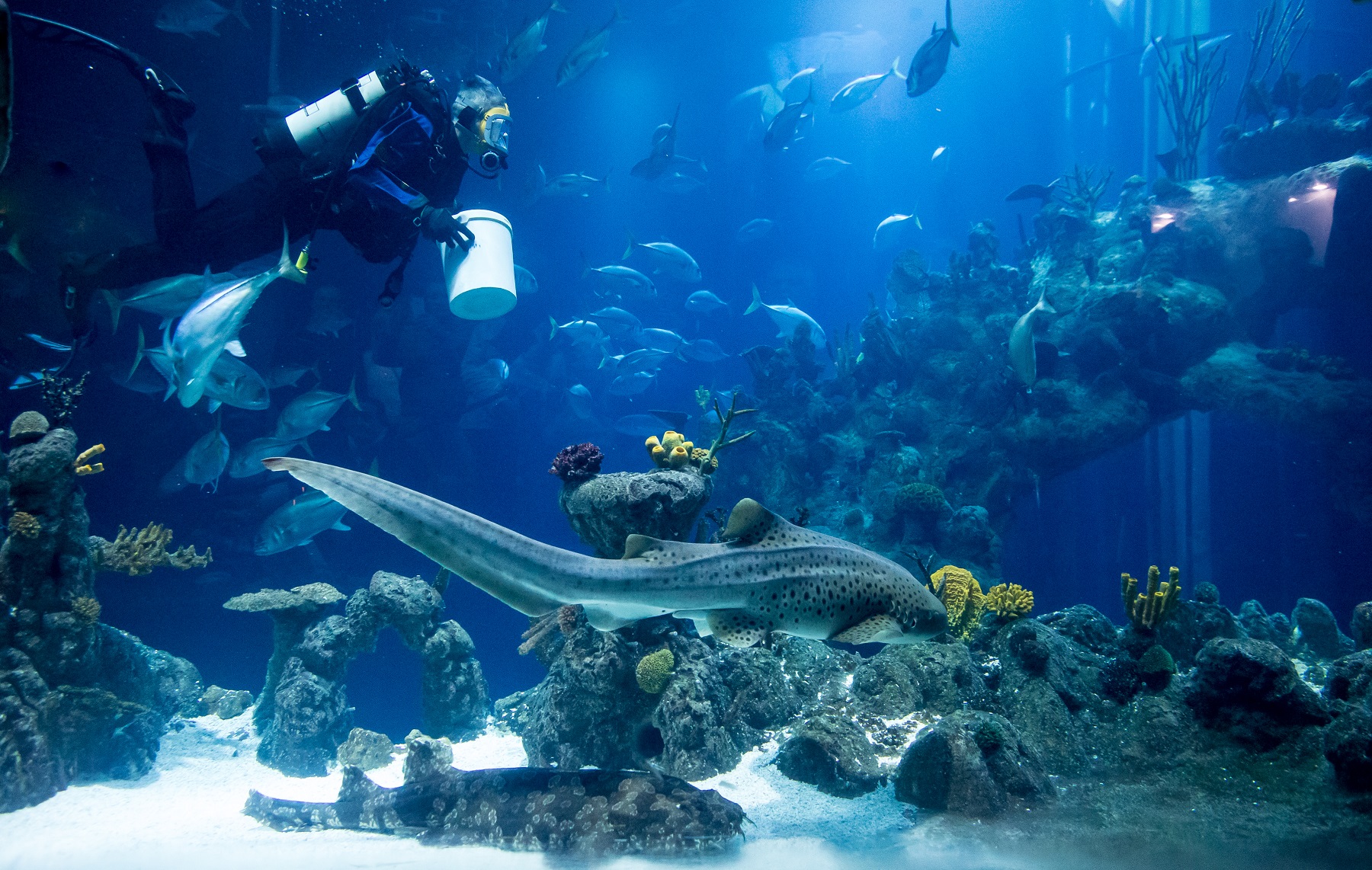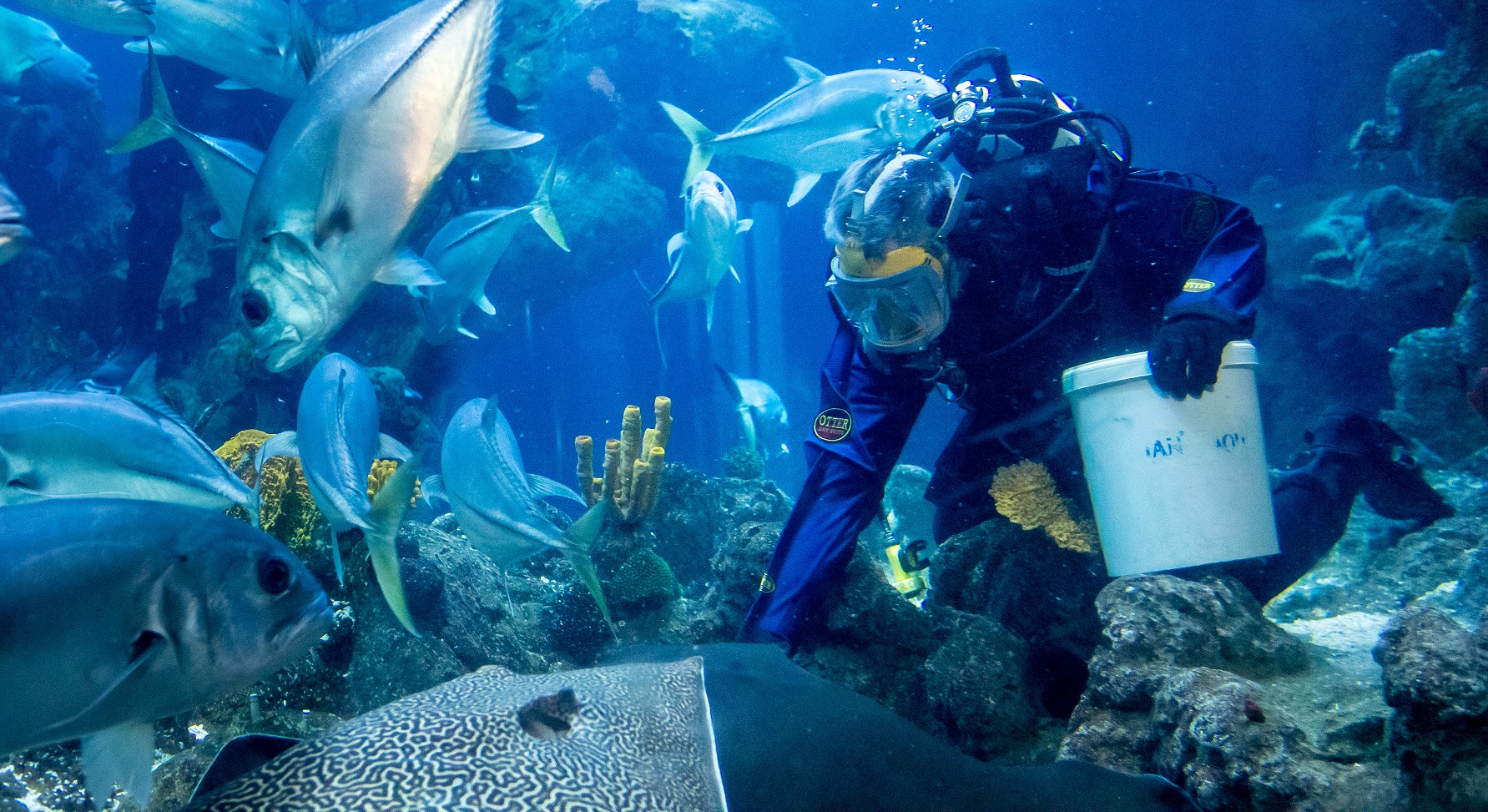The Deep may be closed due to coronavirus measures, but the marine life inhabiting the huge aquarium must still be fed and exhibits must be cleaned.
One of Yorkshire’s most famous attractions, The Deep is operating with a hugely reduced team of experts – but its animals still require the highest standard of care.
And staff are also looking after the building to ensure everything remains in good working order, ready to welcome back visitors.
The Deep has 70 individual habitats and more than 30 filtration systems to manage – the largest being Endless Oceans, which holds 2.5 million litres of water. In all, the attraction houses about 3,000 animals, each of which has to be fed and cleaned on a daily basis.
Curator Ben Jones said: “The day kicks off early in the morning when the team check the filtration systems are all in working order and conduct visual checks of every animal and exhibit within the building.
“All of the smaller displays are cleaned inside and out, scrubbing algae and removing uneaten food. Just because we’re closed doesn’t mean that windows can be dirty. Food preparation is up next, with breakfast being typically served to the animals before 10am.
“Our colony of Gentoo penguins are hand fed twice every day in the morning and the afternoon, with a great deal of time spent on keeping their habitat in top condition.
“Penguins are one of several species at The Deep that require extra attention form the team to ensure that their environment is providing everything that they need. At this time of year when the colony starts to build nests, the team make sure that the right number and size of pebbles are available for the birds to present to each other during courtship rituals.
“Record-keeping remains very important in all aspects of our husbandry care. For example, right now we have three juvenile zebra sharks, born at The Deep, growing in our nursery system.

“These sharks, bred as part of a well-managed European programme, are monitored closely and fed three times per day with the weight of food consumed by each shark recorded.
“To ensure each species thrives, regular water quality testing has to be carried out, analysing temperature, pH, salinity and making sure each part of the filtration systems is doing its job properly. The fish are fed up to four times per day, but the larger animals have to be hand fed by the divers.

“This job allows for accurate recording of food intake and gives the divers chance to give them a close-up MOT. These large displays also need a lot of maintenance and require a huge amount of elbow grease to keep clean.”
An appeal is being made to help raise funds for The Deep, which, as a registered charity, has limited financial reserves. More than £30,000 has been raised so far – but with an unknown length of closure, further fundraising is needed. Visit The Deep’s website to donate.
